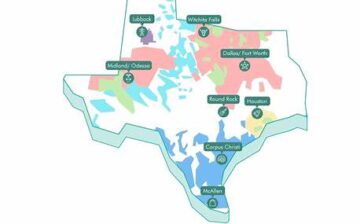Moving is often one of life’s most stressful experiences, filled with endless to-do lists, packing boxes, and navigating new surroundings. For those following a low FODMAP diet to manage digestive symptoms, moving can bring additional challenges. The disruption to routines, limited food options, and unfamiliar environments can make it harder to stick to dietary guidelines. However, with preparation and strategy, you can maintain your low FODMAP lifestyle and minimize stress on your gut during this transitional time.
1. Plan Ahead for Low FODMAP Success
Preparation is key to staying on track with your low FODMAP diet while moving. A little foresight can save you from scrambling for options or inadvertently consuming trigger foods.
Create a Moving Meal Plan
Start by drafting a meal plan for the moving period. Include simple, low-FODMAP meals that require minimal preparation. For example:
- Breakfast: Gluten-free oats with lactose-free milk and a banana.
- Lunch: Grilled chicken with a side of quinoa and spinach.
- Dinner: Baked salmon with roasted zucchini and carrots.
Batch cooking and freezing meals ahead of time can also provide quick, safe options when you’re too busy to cook. Label containers clearly so you can easily identify them during the chaos of unpacking.
Stock Up on Low FODMAP Snacks
Pack a variety of portable, low-FODMAP snacks to have on hand during the move. Options like rice cakes, lactose-free cheese, seed crackers, and mandarin oranges are excellent choices. These snacks can sustain you during long days of packing or traveling, reducing the temptation to grab high-FODMAP convenience foods.
2. Research Safe Restaurants in Advance
When moving, dining out becomes more common due to the lack of a fully functioning kitchen or the sheer exhaustion from the process. For individuals on a low FODMAP diet, eating out can be a minefield of hidden ingredients that may trigger symptoms.
Use Online Resources
Before your move, research restaurants in your new area that offer low-FODMAP-friendly options. Look for places with customizable menus or those that accommodate dietary restrictions. Apps and websites like Yelp, HappyCow, or Monash University’s FODMAP app can provide reviews and insights into local eateries.
Call Ahead
Don’t hesitate to call restaurants in advance to inquire about menu items and their ingredients. Speak directly with the staff to clarify your dietary needs, such as avoiding garlic, onions, or high-fructose sweeteners. Many establishments are happy to accommodate dietary restrictions if given notice.
Choose Simple Menu Items
When in doubt, stick to simple dishes with minimal ingredients. Grilled proteins, steamed vegetables, and plain rice or potatoes are usually safe bets. Avoid sauces, dressings, and marinades unless you can confirm they are low FODMAP.
3. Keep Supplements on Hand
Even with the best preparation, sticking to a strict low FODMAP diet while moving can be difficult. This is where FODMAP enzyme supplements can provide a helpful safety net.
What Are FODMAP Enzyme Supplements?
These supplements contain enzymes to break down FODMAPs, such as lactase for lactose or alpha-galactosidase for galactooligosaccharides (GOS). Taking these supplements before meals can help mitigate symptoms when consuming high-FODMAP foods is unavoidable.
How to Use Them
Keep FODMAP enzyme supplements in your bag or car for easy access during the move. Use them as a backup plan for meals at restaurants or social gatherings where low-FODMAP options are limited. Remember, while supplements can provide temporary relief, they shouldn’t replace the overall structure of a low FODMAP diet.
4. Stay Hydrated and Manage Stress
Gut health is closely tied to stress, and moving is one of the most stressful life events. Stress can exacerbate digestive symptoms, even when following a low FODMAP diet.
Hydration
Drinking plenty of water supports digestion and prevents constipation, which can be worsened by travel and stress. Carry a reusable water bottle to ensure you stay hydrated throughout the move.
Stress Management Techniques
Incorporate stress-reducing activities into your moving schedule, such as:
- Deep breathing exercises or meditation.
- Gentle yoga or stretching.
- Short walks to clear your mind.
Taking a few moments to focus on your well-being can go a long way in keeping your gut calm and symptoms under control.
5. Be Flexible but Mindful
While it’s important to prepare, remember that perfection isn’t the goal. Moving is a temporary disruption, and there may be instances where you can’t completely adhere to your low FODMAP diet. Allow yourself some flexibility and focus on minimizing symptoms rather than achieving strict compliance.
Focus on Your Wins
Celebrate the small victories, like finding a safe restaurant or successfully sticking to your meal plan for the day. Positive reinforcement helps you stay motivated and reduces the stress associated with minor setbacks.
Learn from Experience
Each meal or situation that doesn’t go as planned is an opportunity to learn and improve your strategies for the future. Over time, you’ll become more adept at navigating your low FODMAP diet, even in challenging situations.
Moving doesn’t have to derail your low FODMAP diet. By planning meals ahead, researching safe dining options, keeping enzyme supplements on hand, and managing stress effectively, you can maintain your digestive wellness throughout the process. With these strategies, your move can be a fresh start not just for your surroundings, but for your confidence in managing your gut health.
We hope you found this blog post on Preparing for the Stress Moving Can Put on Your Low FODMAP Diet, useful. Be sure to check out our post on Navigating New Beginnings: Moving To a New City With Ease for more great tips!
Have Experience in the Moving Industry? Want an Additional Income Stream? Work With All Around Moving!
All Around Moving’s program Work With Us, affords the experienced moving consultants with a unique option to run their own Relocation Consultant business.
There is a start-up fee of $275.00 and there is $125.00 admin monthly recurring expense, plus the cost of purchasing your own type of leads you want to work on, i.e.: local, long distance moves, international moves, etc..We share profits 50%-50% with you from all jobs you book with us. Click here to learn more.






